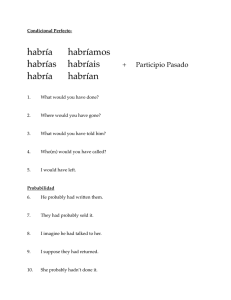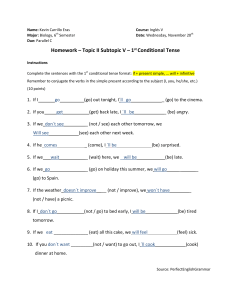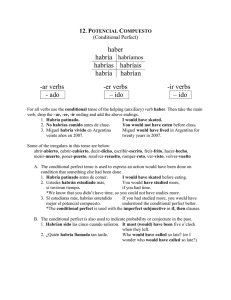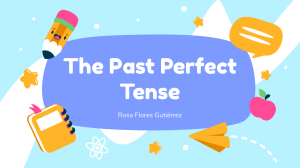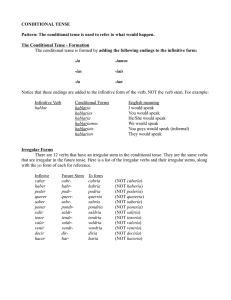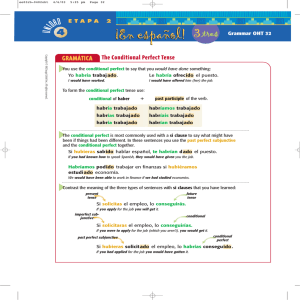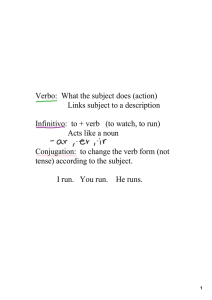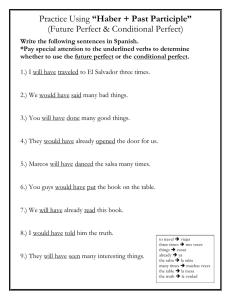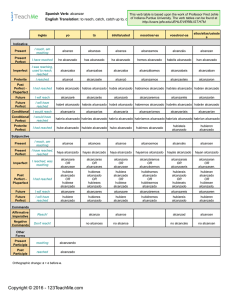Using the Conditional Perfect Tense (el potencial compuesto)
Anuncio
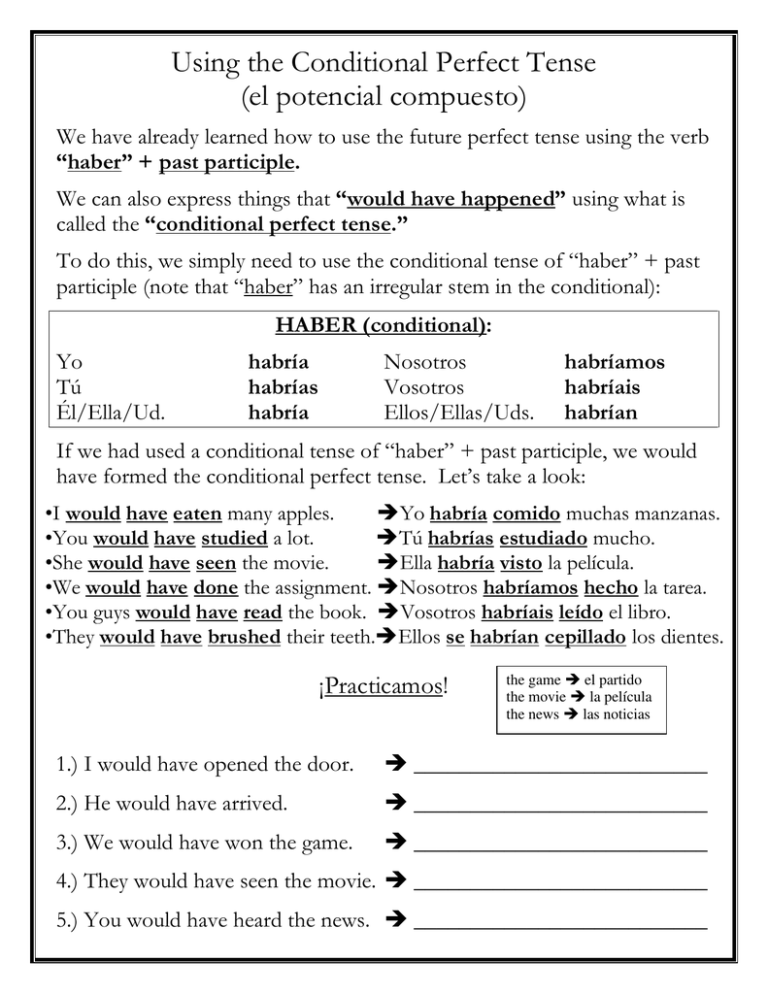
Using the Conditional Perfect Tense (el potencial compuesto) We have already learned how to use the future perfect tense using the verb “haber” + past participle. We can also express things that “would have happened” using what is called the “conditional perfect tense.” To do this, we simply need to use the conditional tense of “haber” + past participle (note that “haber” has an irregular stem in the conditional): HABER (conditional): Yo Tú Él/Ella/Ud. Nosotros Vosotros Ellos/Ellas/Uds. habría habrías habría habríamos habríais habrían If we had used a conditional tense of “haber” + past participle, we would have formed the conditional perfect tense. Let’s take a look: •I would have eaten many apples. Yo habría comido muchas manzanas. •You would have studied a lot. Tú habrías estudiado mucho. •She would have seen the movie. Ella habría visto la película. •We would have done the assignment. Nosotros habríamos hecho la tarea. •You guys would have read the book. Vosotros habríais leído el libro. •They would have brushed their teeth.Ellos se habrían cepillado los dientes. ¡Practicamos! the game el partido the movie la película the news las noticias 1.) I would have opened the door. __________________________ 2.) He would have arrived. __________________________ 3.) We would have won the game. __________________________ 4.) They would have seen the movie. __________________________ 5.) You would have heard the news. __________________________
